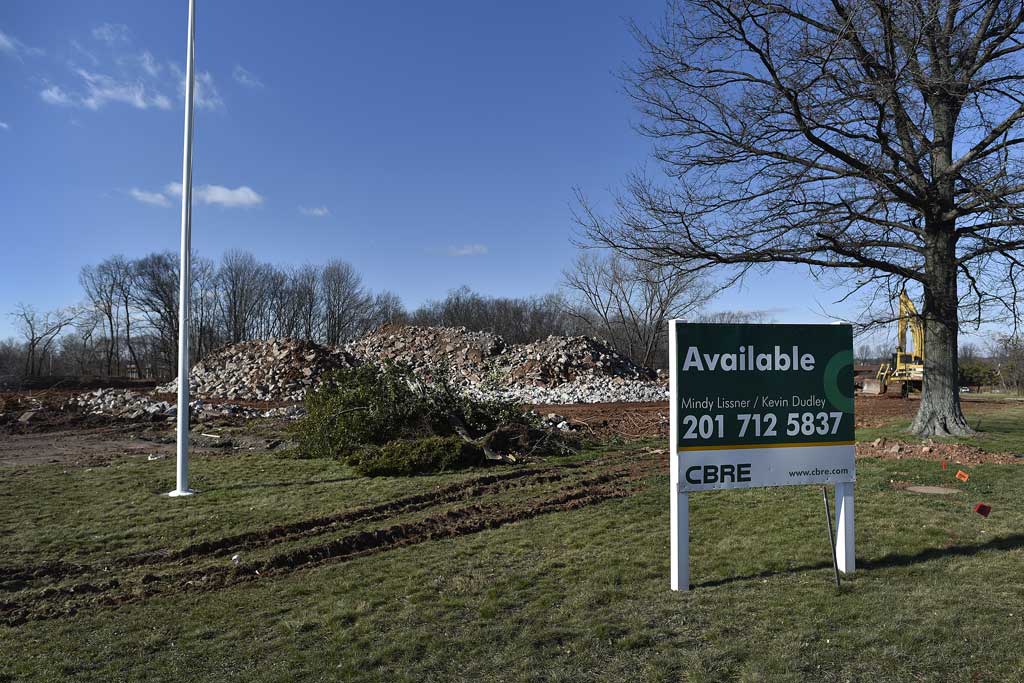By KATHY CHANG
Staff Writer
WOODBRIDGE — With the implementation of the new Peer Recovery Coach Program in the township, those suffering with drug addiction will get the support they need straight from the emergency room.
The statistics are sobering — 19 people died in Woodbridge last year from overdoses, which Mayor John E. McCormac said has been the town’s worst year yet.
“These are high school kids, college kids, graduates, our kids, our neighbor’s kids, our kid’s friends,” he said.
McCormac, in his State of the Township address, said the state started a program in 2014 with five pilot counties where entities would provide peer recovery coaches every time someone was brought to a hospital after a Narcan deployment.
The unique approach of the program is the peer recovery coaches, who are usually in recovery themselves.
McCormac said the peer coaches would make contact with the person and develop a relationship over several more visits where they help the person find the right kind of treatment for their addiction and become someone they can just talk to.
“Although it is somewhat premature to fully evaluate the program, early signs are very promising, and there have been some individual successes in getting people the help they need,” he said.
The pilot counties did not include Middlesex County, so McCormac said the town decided to start its own program.
The township hired Dr. Bonnie Nolan, who has a Ph.D. degree in neuroscience, to head the newly formed Division of Addiction Services at the township Health Department.
The township also hired Elizabeth Cowan, who has a master’s degree in mental health counseling, as Nolan’s assistant.
The township signed agreements with four hospitals — JFK Medical Center in Edison, Robert Wood Johnson University Hospital in New Brunswick and Rahway, and Raritan Bay Meridian Hospital in Perth Amboy — to allow the township access to any Woodbridge resident admitted to those hospitals with an overdose or any other addiction.
“Bonnie and Liz have met with nurses and people on the front lines to be sure they knew how to get their patients help from the Woodbridge Department of Health’s new Peer Recovery Coach Program,” McCormac said.
Through the program, the township has an agreement with New Brunswick-based SOBA Recovery for their services to provide the coaching.
In July 2016, the Township Council approved a memorandum of agreement resolution among the various partnerships involved for the program.
“Bonnie and Liz attended many seminars to learn more about the opioid abuse issue, and just this month we have held four forums in different parts of town for parents and guardians and young people themselves to come and learn the signs to look for to help those in need,” McCormac said. “And we started a recovery group that meets weekly in one of our township facilities where we provide recreational opportunities and just a chance for people to get together.”
Last year, the Barnabas Health Institute for Prevention was chosen to run the Middlesex effort when the state added six more counties to their peer recovery program; however, McCormac said their efforts will be limited to Robert Wood Johnson University Hospital in New Brunswick.
“[This] is not usually where Woodbridge people go, especially for emergencies,” he said. “And since many of our municipal neighbors also do not regularly see their residents travel to New Brunswick either, we decided to offer our programs to these towns.”
McCormac said Woodbridge will partner with their four hospital connections to work together with the rest of the eastern part of Middlesex County.
“We have had preliminary discussions with Edison, South Amboy and Metuchen and we hope to also talk to Carteret, Perth Amboy and Sayreville and together with Barnabas we hope to cover the entirety of Middlesex County,” he said.
McCormac said the state cannot cover every resident in the state due to funding constraints so it is incumbent for municipalities to pick up the slack and get residents the help they need.
McCormac also said Woodbridge is signing an interlocal agreement with the Township of Old Bridge and will sign a contract with Meridian Old Bridge to provide recovery coaches to their residents.
Karen Tortorici, municipal alliance program coordinator in Old Bridge, said the township is investing $25,000 for the agreement with Woodbridge that will be used when needed for the program.
“We’ve had 41 successful reversals [with Narcan], however, we have had 11 drug-related deaths [last year],” she said. “[The Peer Recovery program] is important in the process because a lot of these young adults enter the emergency room and leave without support. It’s important to build the bridge through the peer recovery program.”
Tortorici said there are forums held twice a year in Old Bridge to address the drug addiction problem.
Through grant funds from the Governor’s Council on Alcoholism and Drug Abuse, Tortorici said they were able to learn that their greatest need in the township was to address prescription drug use among young people from late teens to early 30s, which can lead to heroin use.
Tortorici said they are in their third year with the forums. They had a dentist speak about an instance where painkillers for wisdom teeth removal led to an addiction. Another instance involved a child who suffered from a sports injury; the medication for that injury led to an addiction.
“We need to raise medical awareness on painkillers,” she said.
Tortorici said implementation of the state’s Prescription Medicine Drop Off bin has been a success, deterring easy access to prescription drugs where people can drop off expired prescription drugs.
She said primary to high schools also provide drug prevention education.
“The Municipal Alliance sponsors Drug Abuse Resistance Education programs, which is now called ‘Too Good for Drugs’ programs,” she said.
Contact Kathy Chang at [email protected].

